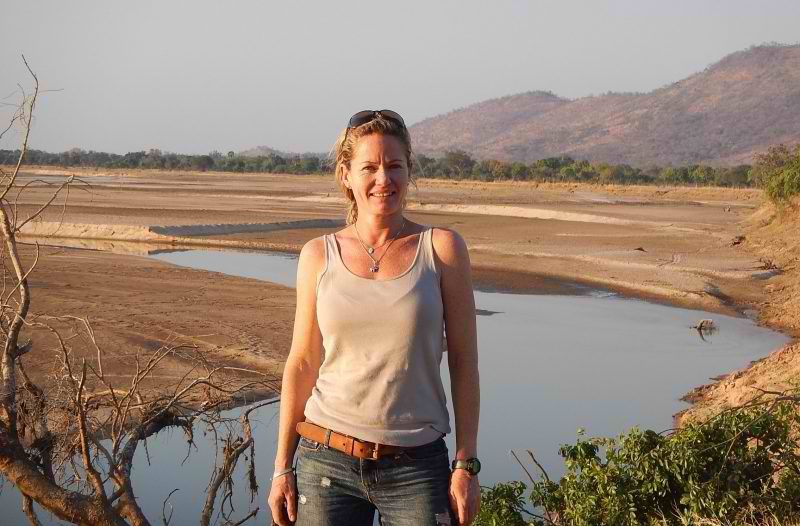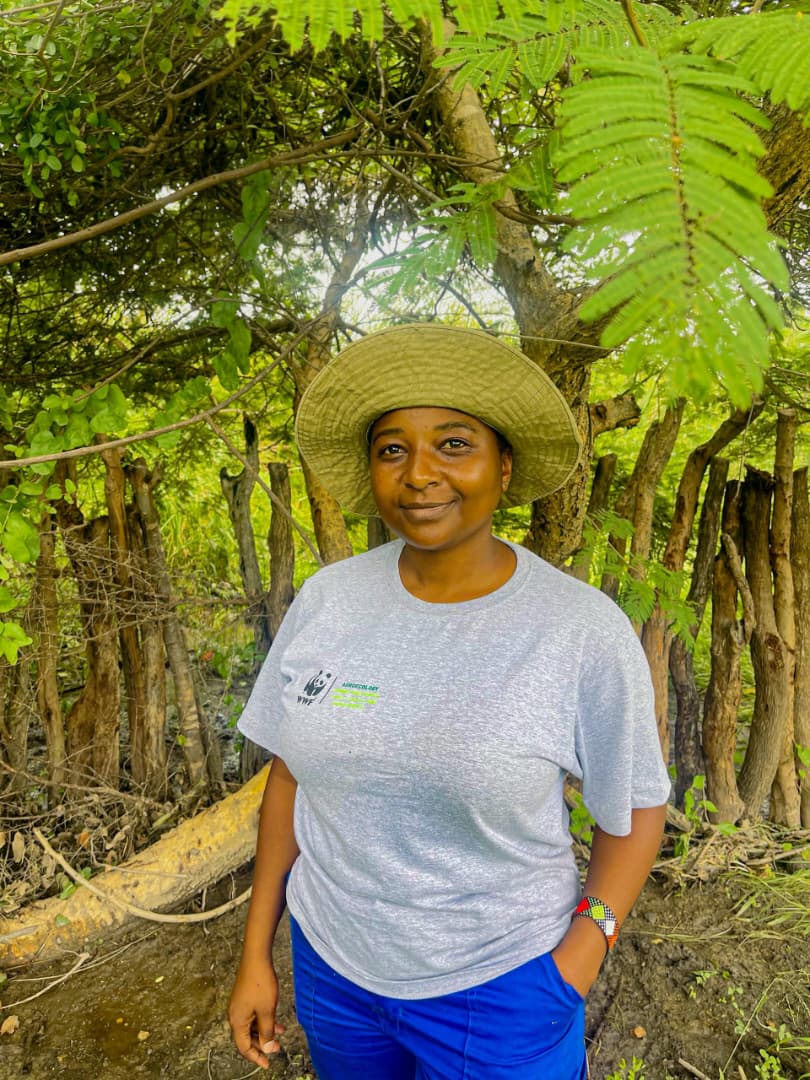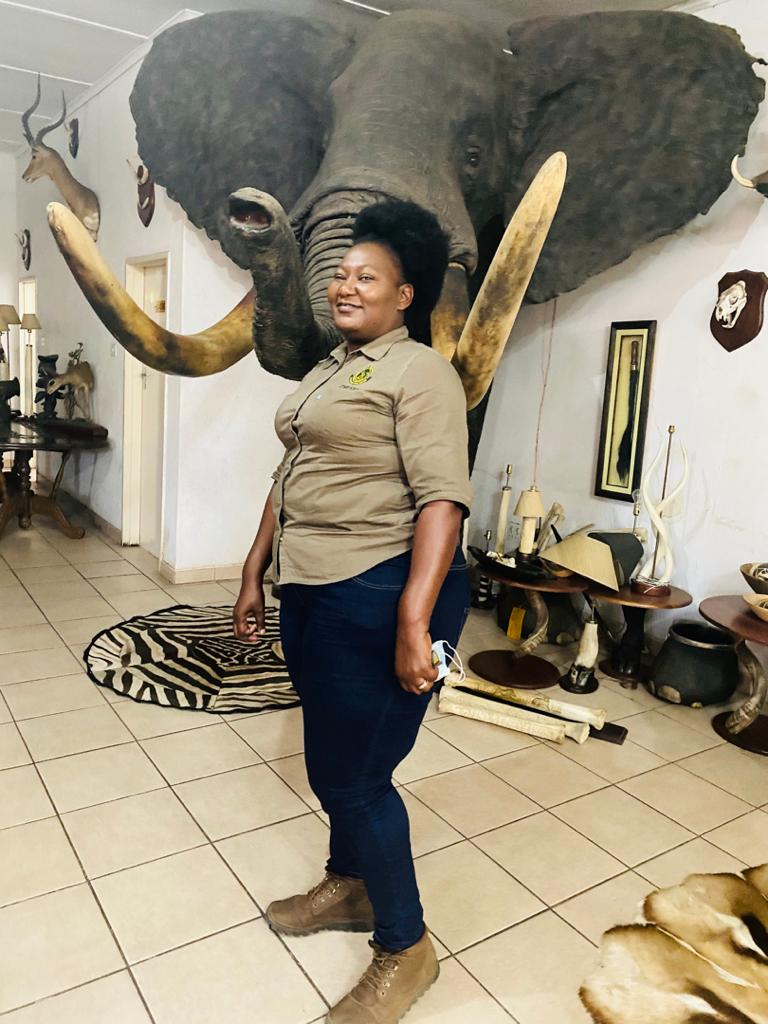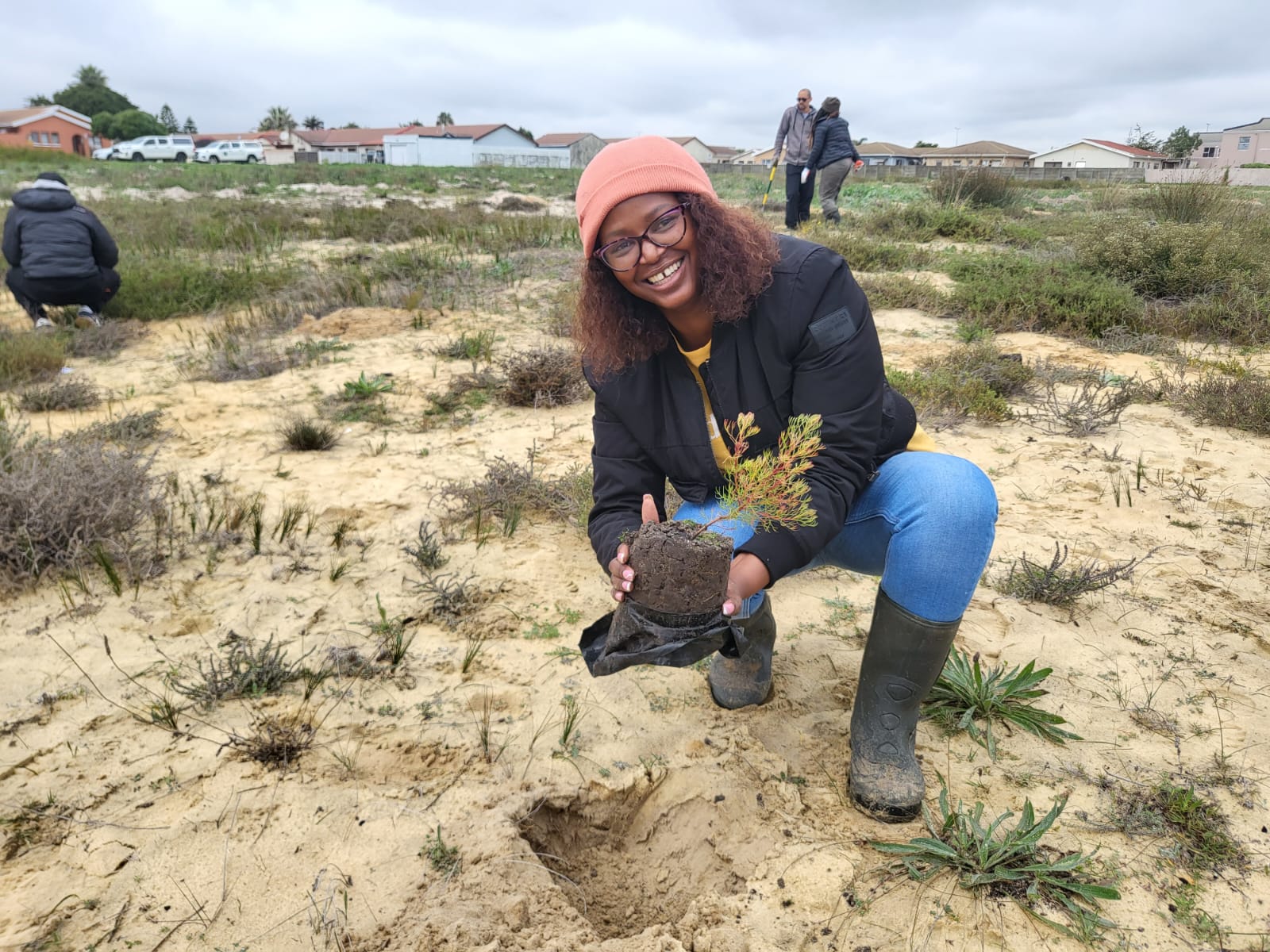The conservation game is a long game; you can't dip in for a year and have an impact.
After witnessing the horrors of poaching and habitat loss in South Luangwa, Rachel McRobb quit her job in the tourism industry to help protect one of Africa's great remaining wilderness areas.
Driven by passion and unwavering courage, Rachel started from the ground up, working tirelessly and making countless personal sacrifices to build a solid Zambian team to help her in her efforts. Together, they have created what has now become South Luangwa's largest non-profit anti-poaching and community organisation, Conservation South Luangwa.
She shares her story with Damaris Agweyu.

Rachel, two decades ago, you founded Conservation South Luangwa (CSL), an organisation that has evolved from a small conservation society with a monthly budget of $150 to a credible conservation organisation with an annual budget of $1,200,000. What skills or personality traits got you this far?
I would say self-belief and courage. In the early days, I honestly had no idea what I was doing. I winged my way through a lot of things. I have what appears to be confidence, but I am probably not a very confident person. What I have is courage. The team that joined me saw this and came on board. Because while I could never have done this by myself, I did look like I knew what I was doing.
Where does your journey into the world of conservation begin?
In the tourism industry. My then-partner and I were working in this beautiful lodge in South Luangwa. My heart has always been in wildlife so when we started noticing an increase in poaching and snaring of animals, I knew something had to be done. We took it upon ourselves to form a group of anti-poaching scouts.
My partner and I left the lodge where we’d been working and went deeper into the national park and started working in bush camps. The great thing for me was my work was seasonal. I'd spend six months in bush camps and six months off. I would use some of the money I'd earned to fund the scouts to do anti-snaring patrols. That's how the organisation started. Our staff consisted of five people under a very loose arrangement. We had no vehicles, no uniforms, nothing, but I knew this needed to be done, and I involved myself in making it happen.
Soon after, my 13-year relationship came to an end. If I'm honest, I prioritised my career over my relationship. But saving wildlife and reducing poaching is more than a job to me, it is my passion. And in hindsight, my partner and I weren't a good fit. Still, it was a difficult and painful breakup. I didn't know who I would be or if I would survive by myself. I was young. But I've always been a very independent, strong lady. After our breakup, my partner left, and I carried on growing CSL.
The organisation got a lucky break from the Danish Embassy in Zambia. Through mutual friends, two women who'd been on safari In South Luangwa were told about me and the financial struggles I was facing trying to set this up. They worked at the embassy and provided us with our first real funding. It was a 3-year grant. I was brand new to grant writing and reporting and it was daunting. There were lots of mistakes but I also learnt a lot of lessons. I was now able to resign from my job at the tourist camp as our new donors were paying my salary. That enabled me to dive headfirst into making CSL what it is today.
It’s easy to underestimate the importance of investing in success every single day. Clearly, you didn’t make that mistake.
From the beginning, I was acutely aware of the fact that none of what we were trying to achieve would happen overnight. The conservation game is a long game; you can't dip in for a year and have an impact. It’s hasn’t been an easy journey but it has been a rewarding one. We still have a way to go. It’s almost like a forever game.
What sacrifices have you had to make along the way?
Personal relationships and marriage. I almost got married at one point in my life but it wasn’t the right time. I knew it would take me away from my path and my passion and I was not ready for it. I had two more serious relationships that ended for the same reason— this was my personal choice. I don t regret any of it as I have since met someone I am very much aligned with and now happily share my life with.
I also decided not to have children. In fairness, I don't know if I ever really wanted them.
I made financial sacrifices that I saw necessary. In hindsight, my salary in the early days was more of a stipend. At the very beginning, I used practically everything I earned from my job to pay the staff. But I was happy to give it away; money didn’t mean that much to me. I had to get serious about it after I started receiving grants. And as you get older, you start getting a bit more serious about planning and saving.
As a woman, have you struggled to lead an organisation in a male-dominated space?
I've had moments of being aware that I am a woman in a male-dominated environment, essentially because I spend most of my time in South Luangwa surrounded largely by the male workforce. But I don't feel as much pressure as some of my female colleagues in this field. I have never felt sidelined as a woman.
Why do you think that is the case?
Maybe because I founded the organisation, and I'm at the most senior level, maybe I am somewhat unaware or maybe I refuse to allow it to define my role. I almost feel a sense of guilt that I'm not facing as many challenges as my sisters. Many of them are based in cities and have to deal with more government and partner challenges than I do.
The other reason could be that I've no problem with being tough and resilient. I get this from my mum and her Scottish heritage.
When people refer to you as a strong woman, how does that make you feel?
It usually makes me feel good because it's the way I've always operated as a person; it reaffirms what I think of myself. But it's also nice when people don't feel that I always need to be strong. More and more, I am letting my team know that I don't have the answer to every problem. Not being in total control is refreshing.
In the beginning, I had to show strength. Everything depended on me— from training and supervision to ordering vehicles and de-snaring. I don't think I could have gotten this organisation to where it is now if I wasn't as armoured as I was. There was just no room to be a soft and sensitive person.
Over the last ten years, having resources has allowed me to bring in more experienced people to run things. This is very rewarding for me because this was always a Zambian grassroots organisation for me. Of the 120 full-time employees, we only have two expats. I have delegated a lot of my previous responsibilities and my team runs the day-to-day stuff.
I am now in a position where I don't have to be the woman to fix everything. Also, we have more women on the team. And as we expand the organisation, we continue to include communities in our work, because we will never succeed if we don't have communities on board. Hearing stories from community members has shifted parts of me emotionally.
I guess in general, there is still the hardcore side of me, but I’m learning to balance it out with a softer side. I am working on becoming the kind of leader who checks in personally. Taking into consideration people's feelings is important.
The WE Africa Leadership Program has helped me explore my personality and feelings, and for the first time in my life, I am gaining the tools to change those things that no longer serve me. This is good for me, my relationships and the work I do.
What's the ideal outcome you are hoping for from the work you do?
A secure and stable South Luangwa National Park in terms of wildlife populations and protection. I would love to see more harmony and co-existence between people and wildlife. For that to happen, people need to benefit a lot more from wildlife than they currently do.
If you could go back in time, what would you do differently?
One of my biggest fears is getting to a certain age and having regrets, and I know my big regret will be not having enough free time for adventures. I love epic adventures. And with our physical bodies, you can only do stuff like that till a certain point. I wish I could have done more of that, indeed, I want to before my time runs out.
Have you ever felt like giving up on CSL?
Yes, eight years ago. Maybe not so much giving up as starting to question if I had anything more to bring to the organisation. I asked myself, "Am I still the right person to be leading or have I given everything I can? Was it time to hand over to someone who would come with new ideas, new life?" I felt stuck and had a wobbly six months, and then I got some amazing new ideas, we started climbing again and all was right with my world.
You can get very comfortable as a leader of an organisation. It's a good thing to check in with yourself from time to time to make sure you're still the right person for your team. If you have lost interest or are just there because you've been there for so long, then it is time to consider other options for the sake of the organisation.
What has your journey taught you about life?
First of all, that we have only one. Therefore, it’s important to identify what your passions are and go for them. From a professional point of view, I’m very lucky in that my work is aligned with my personal values and passions.
I’ve also learned the power of believing in yourself. I spent so much of my leadership journey having no business doing it. But I honestly believe that when I put my mind and heart to something then I can do it. This mindset has worked out really well for me.
***
This interview is part of a series profiling the stories of the 2021 WE Africa leadership programme fellows, African women in the environmental conservation sector who are showing up with a strong back, soft front, and wild heart.





